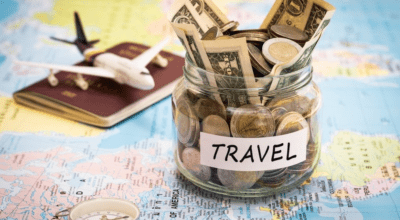In Egypt, we’re all familiar with proverbs that describe making a living as a bitter struggle. Many of us from different backgrounds and for a variety of reasons dream of working abroad at better jobs. Better jobs could mean a better pay, a gig with a comfortable environment.
One thing we don’t consider as a variable, however, is the workday. Whether we mean it literally or we use it to describe the drudgery of an 8-hour workday, the ‘9 to 5’ looms as an inescapable reality; a mold too tough to break. But if you take a look around, and you’re about to, you could be surprised (or appalled) at the variety of workdays that exist out there…
Germany

Via Microsoft
Germany takes the lead in the least annual hours worked per worker around the world and averaged at only 1,356 hours per worker in 2017. The country seems to continually strive for better work-life balance so it is no surprise that their full-time workers devote 15.6 hours of their day on average to personal care and leisure activities. Although most jobs in Germany are nine to five jobs, many companies are successfully replacing it. There are now 6-hour workdays, where you leave your job mid-afternoon. Other companies even give their employees complete liberty to decide how and when to finish their tasks.
Sweden

Via Plaid Zebra
Although Sweden came behind Germany with 1,609 annual working hours per worker in 2017, employees working there are legally protected from being required to work for more than 40 hours per week. The most notable example fighting the 9 to 5 paradigm over there is Toyota’s production plants in Gothenburg. They started implementing 6-hour workdays since 2003. The results were surprising: their employees were happier and they made more profits. Sweden itself started experimenting with 6-hour workdays in many companies about two years ago but the government decided it wasn’t working for them.
South Korea

Via Korea Times
South Korea contrasts Germany and ranks globally as one of the countries with the longest working hours. Counterintuitively, when compared to almost all developed countries, productivity is relatively low. Workers in South Korea worked an average of 2,024 hours per worker in 2017. Numerous South Koreans often take to job forums like Jobplanet to complain about how frustrated they are with what has been termed their ‘Pressure-cooker work culture’. Nevertheless, South Korea recently cut work limit from 68 hours a week to 52.
Samoa

Via Projects Abroad
In the nation of Samoa, they enjoy an approximately 30-hour work week! The average annual cash income is relatively low but the standard of living there is actually quite good. The volcanic islands are known for being deeply religious and conservative and this extends to their work culture. Depending on who is leading the organization you work for, you could find a religious element in professional work meetings, but hey, it’s still a 6-hour work day.
Indonesia

Via Koin Works
One of the interesting things about Indonesia is the discrepancy found between two neighboring peoples residing in it.Most Indonesians work from 8 to 5 and the legal limit varies slightly based on how long your weekend is, but the Kapauku people of Papua, the largest province of Indonesia, believe it is bad luck to work two consecutive days.
What about your nine to five? Is the 8-hour workday becoming nothing but an obsolete tradition? Is it tailored to suit all the different jobs that adopt it? Academic research and reports from major companies suggest otherwise: it’s not necessarily the best thing out there for you or for your company’s profits. So, why do you think it’s still lingering?



























